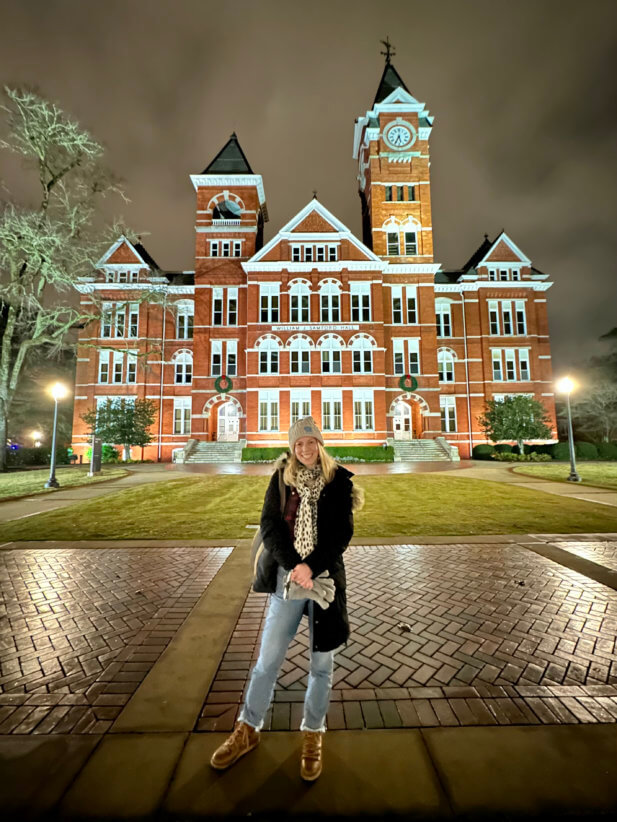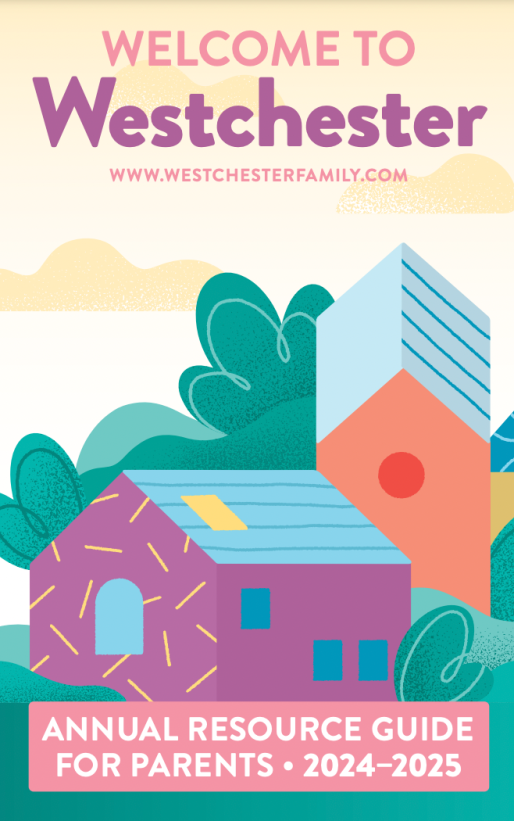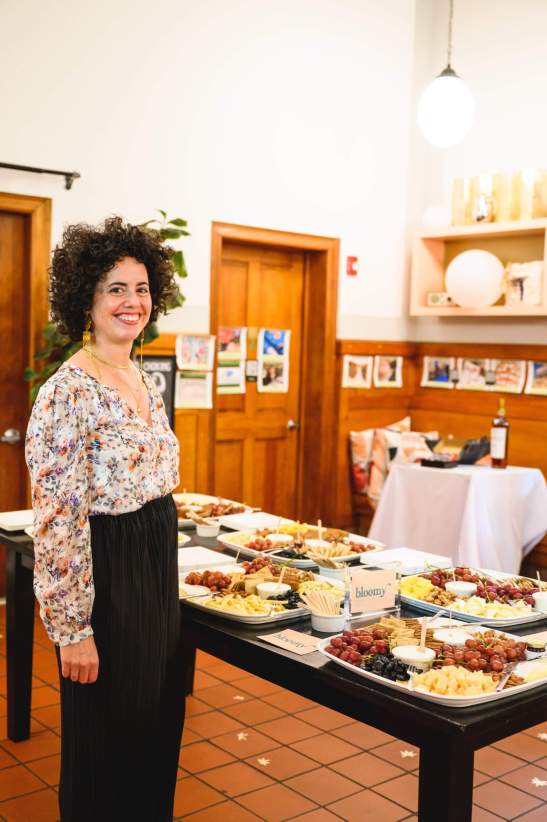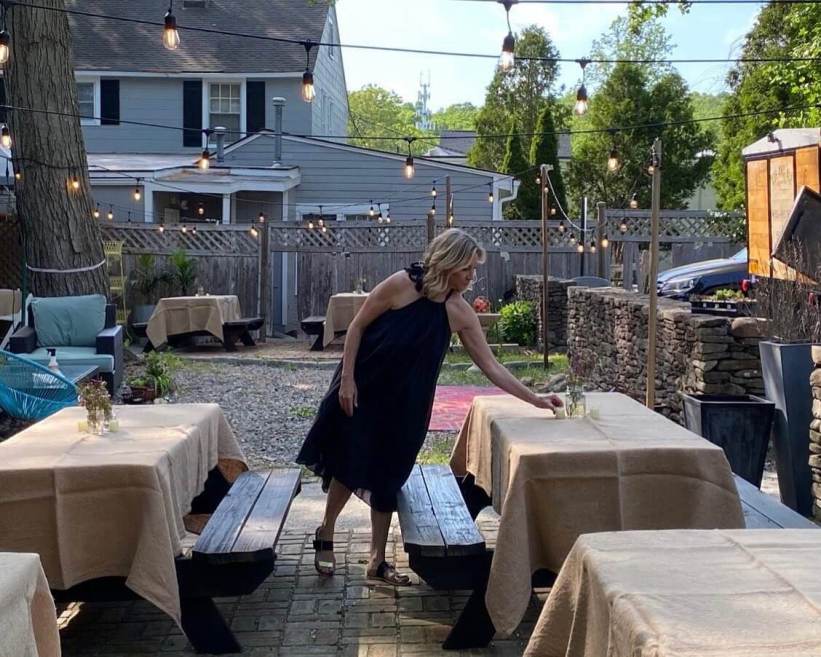
Meet Alyse Levine: Founder and CEO of Premium Prep College Counseling
It all goes by so fast. One minute you’re trying to get your child to sleep through the night, and the next you’re helping them figure out where they want to go to college. Alyse Levine, founder and CEO of Premium Prep College Counseling, realized there was a need for high-level private college counseling as well as prep that was methodical, organized, and reflected the uniqueness of each person.
After years working in both university admissions and high school advising, she pivoted to start Premium Prep College Counseling, a company that has been helping families for the past 20 years by working intimately with students and families to guide them through the college process. Read on to learn more about Alyse and more about Premium Prep College Counseling below.

Westchester Family: How did the idea for Premium Prep Counseling come about?
Alyse Levine: After years of working in both university admissions and high school advising, I recognized that there was a real need for high-level private college counseling done right.
The application process has become increasingly complex, and admissions has become super competitive, while curricular and extracurricular options have proliferated. Families are too often left anxious and guessing. I knew there were some extraordinarily talented college counselors throughout the country, eminently qualified to help students and parents negotiate this process. I also knew there were distinct ways to make the process more methodical and organized, while preserving the uniqueness of each student and his or her aspirations.
Lastly, I recognized that there was a need to professionalize our industry by establishing an ethical, student-based process, based on data and technology and managed by only highly credentialed and eminently experienced counselors.
As a parent myself, I thought about who I’d want to work with my own kids and how I’d want them to proceed. Premium Prep is my answer.

Westchester Family: Tell us more about some of the services you offer?
Alyse Levine: We offer a variety of customizable counseling packages, each of which includes close, personalized work with a Counselor and Writing Specialist. These packages are designed to offer comprehensive support throughout the college process, typically including a deep level of assistance with curriculum and extracurricular decisions and the variety of “Early” options and extensive guidance on the components of the college application, including the essays.
These packages are divided into Silver, Gold, and Platinum, depending on number of hours and the experience level of the Counselor. Our new Hybrid package is a more affordable option, combining custom counseling and proprietary video-based instruction from our senior team, covering key milestones in the college process. More details on our services can be found here.

Westchester Family: When do you think families should start planning for college?
Alyse Levine: Earlier than you might think! Planning for college can feel like a daunting project that’s easy to put off. Where should I begin and how? What do I need to consider now to make sure I’m in a good position later? Questions tend to start swirling as early as 8th grade as students think ahead to high school and start planning their course selections and extracurricular activities.
As students then progress through high school, more questions emerge about standardized testing, academic rigor, and yet more extracurriculars. Before you know it, your child is a junior in high school, time has slipped away, and they are scrambling to figure out where and how to navigate the increasingly complex and competitive college admissions process.
The key is to start early. Starting somewhere between the end of ninth and the middle of tenth grade enables students to break down the college process into a well-planned series of small steps—and, equally important, to pace themselves. Some students find it helpful to start even earlier, but for most that is too soon, since they’ve barely had a chance to adjust to high school. And without at least a year’s worth of high school experience and grades under their belt, it’s harder to make realistic plans.
By starting in 10th grade, students can begin to reflect on what courses they like, possible interests, and what intangibles they may want in a future college. This gives them the time and space to think without the stress of a time-crunch and to continue to dabble without the need to really begin to focus. At this stage, students may also have friends that are juniors and seniors who are deep in the application process, giving them a peer perspective. This is the ideal time to engage with a good college counselor who can help students find authentic ways to develop their interests through course work and extracurricular activities.
Taking early action makes it less likely that a student will look back with regrets about what could, should, or might have been. In the end, one of the most daunting parts of the college application process can be the timeline. By pacing themselves and planning ahead, students can have a less anxious, smoother, more enjoyable, and successful process. And by taking all of these steps in a thoughtful, methodical way, their last year of high school will be more than just a college preparation frenzy. This is really the goal: be in the moment, enjoy high school, but prepare for college along the way, so it doesn’t feel like a mad dash. I cannot stress this enough: starting early has so many benefits—emotional, academic, and strategic.
Westchester Family: What are some ways students can stand out on college applications?
Alyse Levine: You can easily feel like “just a number” when navigating the college admissions process. But colleges really do want to know the real student/person, and they provide many different opportunities to authentically demonstrate your child’s talents, accomplishments, interests, and ambitions. As with everything in the college process, the key is to start early. Knowing the nuances of the application process and laying the groundwork in your child’s early high school years make the actual application process much less stressful! Finding ways to show initiative, leadership and determination while being themselves is the key. Your child should keep a steady and proactive focus on the schools they’re interested in, and show them why they’d be a good fit. Here are 5 specific ways that your child can make their college application stand out:
- Demonstrate Interest. This is very important to colleges and universities. Schools use marketing techniques to identify students who are most likely to attend. This helps them predict yield, a crucial data point in their admissions calculation. (“Yield” is the number of students that choose to enroll out of the number of students accepted. It is a key marker of success in college admissions offices–and a critical factor in those infamous college rankings.) This means it’s extra important for your child to visit schools and connect with local admissions reps. It’s also a good idea for them to follow the schools on their list on social media, take virtual tours (make sure not to skip the part where they ask for your child’s contact information!), and take advantage of other digital engagement opportunities.
- Look beyond the “main” university profiles. Students can learn a great deal by engaging with the main college and admissions accounts on social media and the web. But, your child should also look deeper, based on their interests. They should consider following the co-ed acapella group’s Instagram account, or the women’s club soccer on Twitter. These can be a great unfiltered look into campus life! If your child finds a niche that really excites them, that’s the kind of personal information that can be worked into application essays. It shows the admissions team that your child has gone the extra step to find ways to fit into campus.
- Keep track of your accomplishments. Make sure your child takes the time to keep their resume updated with their honors, accomplishments, achievements, and activities as they progress through high school. Spring musical? All-state band? Food bank all-star? Make sure they keep track of them as they go, and they won’t have to scroll through their phone to remember it all. Remember, leadership comes in all shapes and sizes and isn’t always about being captain or president. Taking initiative also counts as leadership, like founding a school club or starting a volunteer program that enables them to make a difference.
- Be intentional and thoughtful with your course selection. Gone are the days when straight As were enough to turn the eye of a competitive college. With honors, Advanced Placement, and International Baccalaureate classes now offered routinely, it’s important to consider the academic rigor of your child’s schedule. Colleges want to see that the student is being academically challenged—even if that means getting a B in an AP class instead of an A in a standard-level class. And here again, thinking about this early in your child’s high school career will serve them well. Your child should map out their path in each core subject and select electives that demonstrate their interests. Colleges want to see that they’re willing to push themselves when given the opportunity.
- Find, and nurture, your interests! Colleges are looking for engaged and dedicated students—young people who rise to the challenges, but also want to make themselves, and the world, a better place. Your child should find activities that fuel their interests in an authentic way, something they sustain over time. Editor for the school yearbook? Studied piano since they were very young? Do they like volunteering at the local senior center? Part-time jobs can help on this front as can doing things that may relate to your child’s field of study (if they already have one; it’s okay if they don’t!). If your child loves graphic design, they could work on their church or synagogue’s website or newsletter. If the student wants to be an engineer, they could work with STEM clubs at the local elementary school or community center. The key is to genuinely enjoy what they do, since that comes through in the application process.
Westchester Family: What are some things every student and parent should be thinking about as they apply for college?
Alyse Levine: Throughout my career, I have been a big proponent of “the match.” There is a school out there for everyone, and finding that school is much more a matter of knowing oneself and learning about options than following over-hyped rankings, supposed prestige, or what others in your community are saying. To abide by that philosophy means having to search and discover according to your child’s own criteria. This requires that your child first identify those criteria and then setting their own course through the college admissions process.
Translation: They need to do a lot of homework, and there are no shortcuts! Developing a list of schools can be a daunting task, as the variety of colleges and programs can seem endless. Narrowing down is the key, but being open-minded, exposing oneself to different types of schools, and understanding personal specific wants and needs are the crucial first steps. Look inward before searching outward. Here are five ways that your child can optimize their college process:
- Rank your priorities. The first step is for your child to educate themself and think long and hard about their options. Urban, suburban, or rural? Small liberal arts college, midsize university, or large research institution? Public or private? North, south, east, west, or maybe even somewhere abroad? Might your child want to pursue a specialized field of study? Is working alongside major researchers important? Does your child thrive in small classes with teachers who can provide extra attention? What kind of social life do they envision? Does your child love college sports? Is climate a factor? Before identifying specific schools to apply to, your child needs to ask: What do I want out of college?
It’s a good idea to write things down; have your child make a list to organize their thoughts. Encourage them to try to block out the chatter around them and think about what makes them excited, what things might they want to pursue, what are their goals? They should write down as much as possible—even something as simple as “cannot be in the middle of nowhere!”—and then have them rank their priorities. Knowing which things are the most important will help them narrow down their final college choices to the ones that offer the most of what they want. Remember that no single school is perfect. A well-developed ranking will help them decide what things are non-negotiable and what they can maybe live without. - Keep the endgame in mind. Another question to ask your child: What might you want to do after college? I know that this is an intimidating question to ask a high school student, and it’s certainly okay if their answer is “I have no idea!” But some students are already generally aware of what kind of career they’d like to pursue, and in these cases it’s wise for your child to think about how best to position themselves for success in a particular field. Of course, their plans may change, but it’s still important to keep the endgame in mind when entering the college admissions process.
For example, if the student wants to go into the health professions, consider colleges with robust science departments, strong pre-health-science advising, an undergraduate degree in nursing, or a public health school. Is your child interested in theater? They may want to focus on schools that have top repertory companies right on campus. Even if they are unsure of what kind of profession they would like to pursue, getting into a school with lots of options in your child’s areas of interest will allow them to connect with like-minded peers and get guidance and mentorship from professors, while both expanding your horizons and focusing in on potential career options. They might even discover something they hadn’t considered! - Sample a variety of schools and types. I tell students it’s important to remain open to a wide variety of colleges and not be too quick to set your heart on one or two (or three). As they think through their priorities, they should allow their list of schools to evolve too. One of the best ways to know a college is to set foot on its campus. Even if a school seems like the perfect fit on paper, a visit might reveal things your child didn’t know or hadn’t considered. Can they picture themself there? Will the academic and extracurricular options satisfy their needs? Is the atmosphere appealing? To get a real feel for a particular college, nothing beats walking across its campus, attending information sessions, talking to students and admissions representatives, and touring specific departments, programs, or facilities.
The campus visit can also be the most fun part of the college application process! First-hand experience will enable your child to be a better judge not only of that particular school but the types of schools to ultimately consider. I also advise students not to limit themselves to one type. A positive visit to a place that doesn’t fit their initial criteria might inspire them to expand those criteria. Again, the college admissions process is all about self-reflection, and each student should allow that process to unfold, develop, and evolve. Cast a wide net, and then refine. - Create a Balanced List. This is really the goal. Admissions is a complex, sometimes quite brutal process, and there are no guarantees. The single most important way to manage it and mitigate the risks is to develop a list that is aspirational but also realistic and cautious. It’s okay to shoot for the stars, but don’t be reckless.
At Premium Prep, we always stress the importance of a balanced list of Reaches, Targets, and Likelies. (We avoid the term “Safeties,” since these days it seems like nothing is safe.) A great rule of thumb is to start with seven to ten schools in each category and then whittle down to three or four in each. And be sure to do your research and get the latest data, since lots has changed in the college admissions landscape in recent years. Things have gotten substantially more intense, and numerous schools have become much more competitive than they were just a decade ago. (Parents: be especially conscious of this fact. Things are very different than when you applied to school!) - Think hard about “Early” strategies. Options like Early Decision and Early Action are tempting ways for college applicants to get a leg up. (Early Decision is a binding application to a university; Early Action is a non-binding application. There are also other variations of “Early Action” applications.) And the Early trend is well founded: elite schools increasingly focus on Early applicants, often relying on them to make up between 30 and 50 percent of their incoming classes; and admit rates for Early applicants are higher–sometimes shockingly so. Early options are therefore very appealing to students willing to focus on one dream school (and willing to forego potential financial aid comparisons if admitted). Indeed, applying Early can be a powerful tool, but to be most effective it needs to be wielded judiciously. Despite its rising popularity in certain communities, it’s not for everyone, and it can be used only once (sometimes twice–e.g. “Early Decision 2”). Be sure your child knows the options at each school, what restrictions come with each of those options, and be sure they choose very carefully if committing to an early path. This can have a huge impact on your child’s college admissions process overall.
These steps will put your college-bound student in a good position to find a great match, while also protecting them from the unpredictability of the college admissions process. Of course, they are only the most basic steps. There’s a whole lot more involved, nuances to consider, work to be done. The process can seem like a rollercoaster ride—one that may involve some struggle and disappointment but will hopefully result in a positive outcome for your child. By doing what they can to set themselves up well and maintain a healthy outlook, your child will have the best chance of achieving their goals.
Westchester Family: How has the college application process changed?
Alyse Levine: The college application process has changed dramatically in the last decade and continues to rapidly shift. Most notably, it is simply much more difficult to get into college than it used to be. The number of college applicants has risen sharply, especially over the past 10 years, and this trend does not appear to be letting up any time soon. Numerous studies have shown that application numbers have skyrocketed over the past decade—often by more than 50%! Given this explosion, the selectivity of universities has increased dramatically across the board, impacting virtually every aspect of college admissions. The precipitous drop in admit rates—and the resulting intensification of competition among applicants—can manifest in predictable and measurable ways. Average admitted-student SAT and ACT scores, for example, have risen along with selectivity, making an already stressful process feel all the more arduous. Meanwhile, schools are moving more and more towards “test-optional,” which often leaves students uncertain about whether to take and then submit their scores.
Diversity initiatives have also fundamentally altered the college application process for all applicants, regardless of their identity. Enrollment priorities for universities consist of more widely recognized markers of diversity, like racial minorities and socioeconomic status. However, a huge number of other enrollment priorities also make their way onto colleges’ checklists, including but not limited to: geographic location, sexual preference, religion, gender, special talents, development potential, and a whole host of other factors. Of course, it’s necessary and important that colleges and universities strive for an authentically diverse student body, looking beyond numbers and test scores to see the true measure of an applicant. Yet, applicants are often left feeling unsure of how exactly they are being judged and whether they fit the set of criteria upon which admission decisions are based.
Although the relationship between a college’s increase in applicants and its increase in selectivity can appear to be natural and logical from an outside perspective, it is important to remember that in today’s culture, colleges are incentivized to actively cultivate a reputation for selectivity.
An increase in a school’s applicant pool reduces their admit rate, which then boosts their rankings and enhances the public perception of how “good” that school is. And the greater the selectivity of a college, the more applicants that school attracts, depressing its admit rate even further. Together, these factors—the increases in selectivity, the focus on rankings, the intensified stress on test scores, the lack of clarity around each school’s enrollment priorities—has made the college admissions landscape feel treacherous. Amidst all this, options like Early Decision and Early Action have emerged as tempting ways for college applicants to get a leg up. (Early Decision is a binding application to a university; Early Action is a non-binding application.
There are also other variations of “Early Action” applications.) And the Early trend is well founded: elite schools increasingly focus on Early applicants, often relying on them to make up between 30 and 50 percent of their student bodies. The admit rates for Early applicants are higher—sometimes shockingly so—as colleges realize that there are myriad advantages to locking in desirable applicants. For this reason, Early options are very appealing to students dead-set on one dream school (and willing to forego potential financial aid negotiations if admitted). However, this kind of application process comes with its own host of societal issues, most notably the fact that it often poses additional challenges for lower-income students. All of these factors are interrelated, complicating the college admissions process, amplifying its competitiveness, and increasing overall stress and anxiety.
Over the course of my career, I’ve seen students and families feel more and more confused and overwhelmed when attempting to figure out the right way to apply to colleges. (And, by the way, there is no one “right” way to do it. Each student and family is unique, and each must find the approach that best matches their own goals and situation.) What is abundantly clear is that the process has become simultaneously more highly pressurized and more ambiguous.
Westchester Family:Where can families work with you in Westchester?
Alyse Levine: We hire the best counselors for across the country, and services are rendered via zoom, FaceTime, google docs, etc., along with our proprietary software. We therefore can work with any family anywhere and match each student and family with the best counselor for them.
Westchester Family: What is the process like for working with a student?
Alyse Levine: Premium Prep provides a custom, student-centric approach to college counseling, with a philosophy deeply rooted in an ethical, highly professionalized method and counselors with decades of experience in high schools, working with families. We guide students through every phase of their college process, including: assessing their credentials and developing the College List; Campus Visits, Interview Prep, and Demonstrating Interest; Curricular and Extracurricular Choices; and the Applications and Essays. We demystify the college process by putting clear systems in place and relying on concrete data, cumulative knowledge, and true expertise.
With PrepSpace, our proprietary college process management app, each student organizes their unique educational journey. The core of Premium Prep’s philosophy is the Match—a concept that underlies our entire approach to college admissions. First, we match each student with a counselor whose expertise is best suited to the student’s needs and interests. This allows us to deliver highly personalized attention and the highest level of guidance—keys to maximizing results. Then, we strive to match each student with a list of schools that most accurately reflects those needs and interests. This not only ensures a successful process, but, more importantly, it provides the best chance for a successful college experience in the long term.
Finally, we work diligently with students to match the particulars of their applications with the identity of the specific colleges to which they are applying. Like students and families, each school has its own “personality,” and our counselors have spent years getting to know colleges intimately. We also carefully match the student with a Writing Specialist who works alongside the counselor to cultivate a team approach to the student’s success. In the end, our students hold substantial advantages: they have a leg up both on getting in and on attending a school where they will flourish.
Westchester Family: Anything else to add?
Alyse Levine: I’d reiterate the things that really distinguish what we do from others: our determination to hire only the best, most professional and credentialed counselors, with decades of experience in schools; our student-centric approach that focuses on what’s best for students and families; and our use of technology and data to organize the process and make it more efficient and transparent.

















